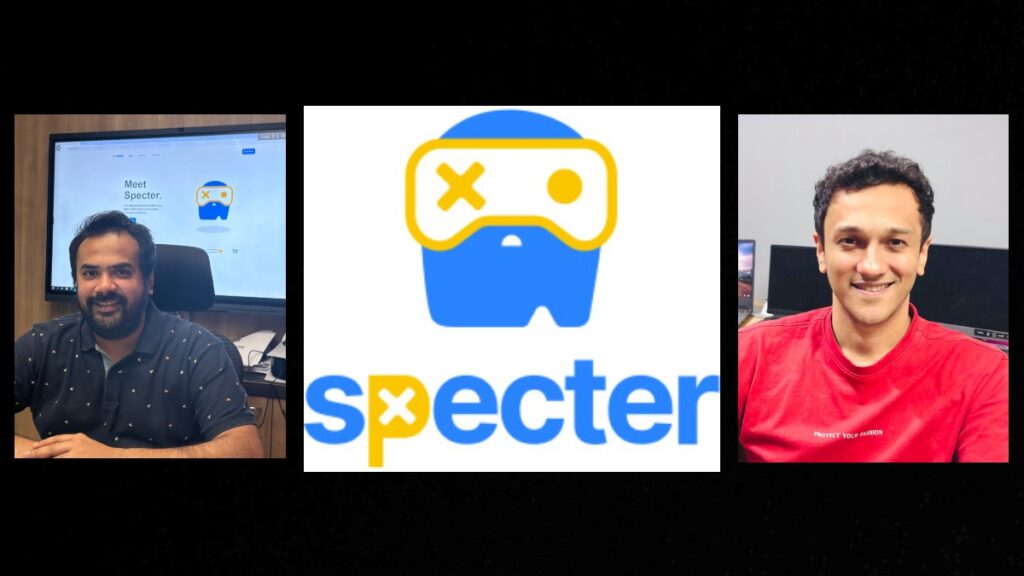
While the Indian gaming market is on an upward trajectory, most studios in India face multiple roadblocks – limited access to international events like GDC and Pax, lack of technical backend expertise, funding constraints and minimal support for PC development. But Dirtcube Interactive co-founders Mikhail Bhuta and Pravan Parikh are determined to address one of these roadblocks – backend – with Specter, a fully integrated, cross-platform backend and LiveOps ecosystem.
Mumbai-based game and game-tech studio Dirtcube Interactive launched Specter in January this year.
“Specter is a turnkey Backend-as-a-Service (BaaS) platform that requires minimal coding experience,” explained Bhuta. “It allows developers to easily integrate robust systems like complex game economies and player progression; achievements, rewards, and player progression (eg: XP systems), competitive features like leaderboards and tournaments, as well as real-time multiplayer matchmaking with ranking and fair play mechanisms.”
Specter, which serves games of all platforms as well as businesses looking to add gamification layers, was built with both indie developers and non-technical game designers in mind. “We provide users with powerful, modular tools without the need for deep backend expertise,” noted Bhuta.
The core idea behind Specter is democratisation. “We wanted to make backend technology accessible to every developer, not just large studios,” Bhuta mentioned. “LiveOps and backend systems have become essential to extending the lifecycle of modern games, but historically, only big studios could afford to build or license them. With Specter, we enable developers to focus on what they do best – building great gameplay while we handle the complexity of scalable, secure backend services at an affordable price and with ease of integration.”
Bhuta walked us through the tool’s integration process:
- Sign up for a free account on the Specter platform
- Access comprehensive documentation and developer learning tools, including our Dirtcube’s in-house API tool for easy onboarding
- Download the Unity SDK or integrate via Rest APIs (more SDKs coming soon)
- Choose features from Specter’s modular system – multiplayer, economies, leaderboards, etc.
- Test and design API flows in Specter’s sandbox environment
- Use the no-code visual dashboard for configuration
- Seamlessly transition to production once ready
“Integration typically takes one to two weeks, depending on complexity, and our team offers live support throughout,” said Bhuta.
Indie developers, however, often face financial constraints. So how is Specter’s pricing model designed to be accessible? “We’ve built Specter’s pricing with empathy for indie developers,” Bhuta said. “We have a Free Tier – which includes complete development lifecycle at no cost. Then there is a Starter Plan – designed for early-stage launches with limited revenue. The Growth Plan scales with game success; pricing grows with your player base. And finally the Enterprise Plan – tailored for large-scale games with custom requirements.” He added, “There are no upfront licensing fees. It’s a pay-as-you-grow model, significantly more cost-effective than hiring a backend team or building in-house.”
To ensure scalability, security and performance for developers, Specter is built entirely within the AWS ecosystem, aligned with their Well-Architected Framework. “This includes auto-scaling through services like EC2, Lambda, Aurora, and API Gateway; polyglot database architecture tailored for optimal use cases; event-driven design ensuring low latency real-time performance, GDPR compliance in progress for global readiness and multi-region deployments for worldwide low-latency access,” elaborated Bhuta.
The game developers who have integrated the tool have called it “easy to use” and “developer friendly.” Gods & Heroes studio is using Specter for God of Cricket, a console/PC 11v11 multiplayer cricket game. One studio integrated a ranked matchmaking system within days, a task that would typically take months. “Our APIs and tools are praised for fitting naturally into dev workflows,” shared Bhuta. “Teams love our modular approach, only integrating what they need.”
Dirtcude is growing awareness about Specter through a multi-pronged approach: SEO-first content strategy and tutorial-driven inbound marketing; targeted outreach to developers via cold emails; presence at industry events; developer community building through Discord, forums, and social media; exploring partnerships with game engines and gamification platforms.
“Whether it’s a startup or Fortune 500 brand, we empower teams to implement meaningful gamification quickly and efficiently,” said Bhuta. “Our long-term vision is to make Specter not just a backend, but a co-pilot that designs and powers dynamic, engaging digital experiences across industries.”